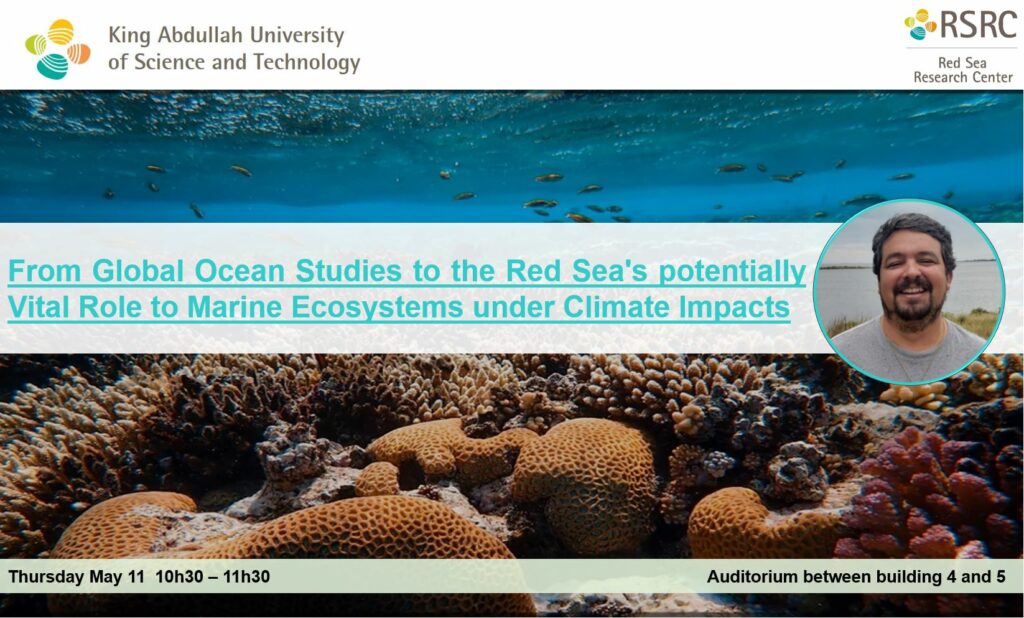
Presenter: Roberto Venegas
Host: Prof. Burton Jones
Date: Thursday, May 11
Time: 10:30 – 11:30 a.m.
Location: Auditorium, between building 4 and 5
Registration is not required
Light refreshment will be served
Abstract
A synopsis of international collaborative marine research efforts will be presented, including marine biology, ecology, oceanography, fisheries, remote sensing, and climate change studies. These efforts use advanced statistical approaches and span oligotrophic to nutrient-rich upwelling regions. The studies also encompass different spatio-temporal scales – from local, hourly sampling to global projection models over 250 years under different CO2 emission scenarios. Similar research can potentially be part of collaborative KAUST efforts, if not yet developed.
About the speaker
Roberto Venegas is a highly qualified marine biologist, oceanographer, and ocean climate scientist with a wealth of academic and professional experience. He received his Bachelor of Science degree from Universidad Arturo Prat in Iquique, Chile, his Master of Science degree from Oregon State University in Oregon, USA, and is currently a PhD candidate at Deakin University in Victoria, Australia. Roberto has a proven track record of success in marine research, data analysis, and marine ecosystems management, and has built strong relationships with individuals and organizations at national and international levels. He has a diverse and extensive network of collaborations and has demonstrated multidisciplinary expertise in programs related to strategic planning, communications, and research across various sectors, including coastal to pelagic ecosystems and at depth.
Prior to pursuing his PhD, Roberto worked in several organizations, including the National Oceanic and Atmospheric Administration, the Institute for Marine and Atmospheric Research at the University of Hawai’i, and Oregon State University in the USA, as well as Pontificia Universidad Católica and Universidad Arturo Prat in Chile, where he was born. Roberto has led and co-led international research efforts involving in-situ, remote-sensing, and modeling techniques to better understand the physical, chemical, and biological variability of marine ecosystems. He has put particular emphasis on researching intertidal and subtidal zones, coral reefs, fisheries, and on ecologically important species with outcomes applicable to the management of marine resources from tropical to subtropical regions.
His expertise also includes the analysis of climate change variability from global to local scales under different CO2 scenarios to identify sustainable pathways for future marine conservation planning. He has published numerous articles in peer-reviewed journals and books and has presented his research at various international conferences and institutions.

